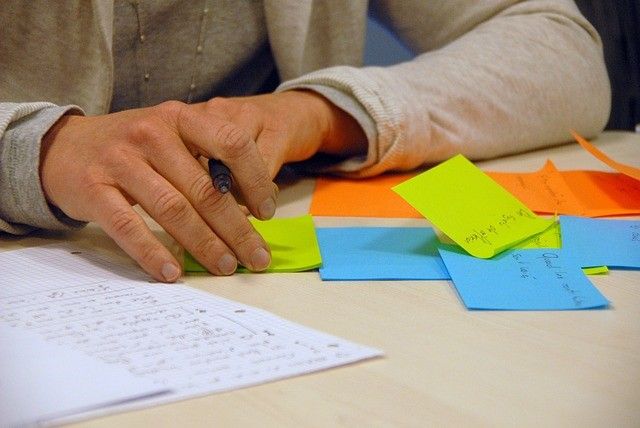
Do you consider yourself a multitasker? You can actually accomplish a lot more if you're not.
We’ve all heard that multitasking is a good way to operate and it’s usually a brag-able skill people put on their resumes. After all, what’s not to like about multitasking? You get more done, you’re flying along at breakneck speed, connecting the dots as you go and mastering all the necessary tasks.
Or are you?
Research has found that multitasking isn’t as seamless a process as we might have once thought. This is primarily because the brain has difficulty doing certain things simultaneously and, while multitasking, operates more of a start-stop process than a streamlined one.
This is where it gets messy for multitaskers; all this stopping and starting means we actually get slower at tasks so, rather than saving time, they actually longer, so you’re less productive. What’s more, those who say they’re great (?) multitaskers are actually worse at concentrating on a task, according to a Harvard study, with researchers finding they are more distractible – some chronically distracted. In fact, multitasking may be doing damage to cognitive abilities. It has been found that people who say they’re multitaskers actually perform worse than non-multitaskers on a whole range of mental tasks.
So multitasking is out. Take it off the resume and stop ‘humblebragging’. Here’s what really works: monotasking. This is about focusing on one task, and chunking your time. This is a very simple technique, yet remarkably effective.
If you can, make time to tackle just one task. Don’t be shy about being specific and breaking down each task into sub-sections. By blocking out all other distractions – have the TV off, no chatter, and preferably little music – and concentrating on just that one thing, you’ll find you will achieve a lot more overall. Also, try to check your email only at certain points in the day. Studies show that office workers spend a huge 30 per cent of their working day reading and replying to emails.
There is also a technique called the Pomodoro that may help. Set a timer for, say, 20 to 30 minutes, and work solely on one particular task. Simply knowing you are racing against the clock is enough motivation to get going on a job and see it through to completion. If it needs more time, take a break for five minutes before starting the timer again.
We can only concentrate for a certain amount of time so, if you’re a manager, keep meetings short and to the point. Also try to encourage your staff to work on one job at a time, and switch up tasks after an hour to refresh their brains and feel mentally rejuvenated.
If you’re working on site and not in an office environment, the suggestions are the same. Work hard on one task for a set amount of time and have a few minutes of downtime. Then repeat. There is some evidence to suggest that 52 minutes of work followed by eight minutes of ‘downtime’ is helpful, so try that as an experiment if you can.
The fact remains that nobody can stay highly motivated for eight or ten hours per day, every day. But we are currently not being as productive and efficient as we could be. Forget multitasking and try monotasking instead.